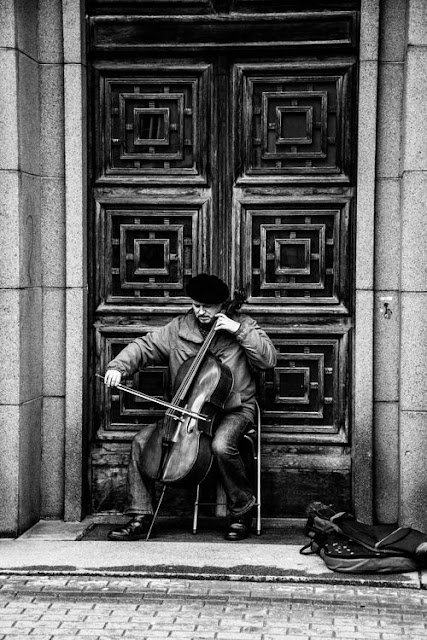the cellist (or how to succeed at music by really trying)
So I have a story for you...
A few years ago I was working with a young musician. He was enrolled in a highly respected program where he concurrently attended both a competitive ivy league school and an elite music conservatory. He was an equally fine cellist and young scholar.
About three months into his sophomore year, he walked into my office panic stricken. He had just returned from a music lesson where he was told that it was time to take his music to the next level and he needed to find an additional two hours each day to practice. "Two hours!" the young cellist exclaimed while throwing himself into the chair across my desk. "Where will I find two hours?"
It turns out he was asking a fair question. The young man was using every free hour in his day to either eat, study, practice, perform, bathe or sleep. It was only every other week or so that he broke away for a bit to catch a movie or dinner out with friends. And the work was paying off. He was a 4.0 student, pursuing dual majors in math and philosophy. But there was not room to give.
After reviewing his daily routine, trying our best to scrounge up an extra 20 minutes somewhere, I finally asked, "What if you just studied less?"
The kid looked horror stricken. "What do you mean?"
"I mean, what if you studied less? What would happen?"
He sat in his chair silent for a few minutes, picking away at his thumb nail. Finally he answered, "I wouldn't get As."
"What do you think you'd get?" I asked.
"Bs?" It was a question.
"Probably so." I said.
"But I don't get Bs."
"But what if you did?"
He had never earned a B in his life. And the thought of a B as "okay"was liberating. The thing is, he had every intention of being a professional musician and everyone (his faculty, mentors etc.) agreed that his intention was not only realistic but likely. Truth is, he didn't need the degrees in math and philosophy, much less a 4.0. He was in the dual program because he loved to learn and thought, "why not get a B.A. while I'm at it."
The moral of the story is this: sometimes we need to examine our goals, and re-think our definitions of success. We might have the goods to "do it all" but why should we? And at what cost?
A few years ago I was working with a young musician. He was enrolled in a highly respected program where he concurrently attended both a competitive ivy league school and an elite music conservatory. He was an equally fine cellist and young scholar.
About three months into his sophomore year, he walked into my office panic stricken. He had just returned from a music lesson where he was told that it was time to take his music to the next level and he needed to find an additional two hours each day to practice. "Two hours!" the young cellist exclaimed while throwing himself into the chair across my desk. "Where will I find two hours?"
It turns out he was asking a fair question. The young man was using every free hour in his day to either eat, study, practice, perform, bathe or sleep. It was only every other week or so that he broke away for a bit to catch a movie or dinner out with friends. And the work was paying off. He was a 4.0 student, pursuing dual majors in math and philosophy. But there was not room to give.
After reviewing his daily routine, trying our best to scrounge up an extra 20 minutes somewhere, I finally asked, "What if you just studied less?"
The kid looked horror stricken. "What do you mean?"
"I mean, what if you studied less? What would happen?"
He sat in his chair silent for a few minutes, picking away at his thumb nail. Finally he answered, "I wouldn't get As."
"What do you think you'd get?" I asked.
"Bs?" It was a question.
"Probably so." I said.
"But I don't get Bs."
"But what if you did?"
He had never earned a B in his life. And the thought of a B as "okay"was liberating. The thing is, he had every intention of being a professional musician and everyone (his faculty, mentors etc.) agreed that his intention was not only realistic but likely. Truth is, he didn't need the degrees in math and philosophy, much less a 4.0. He was in the dual program because he loved to learn and thought, "why not get a B.A. while I'm at it."
The moral of the story is this: sometimes we need to examine our goals, and re-think our definitions of success. We might have the goods to "do it all" but why should we? And at what cost?


